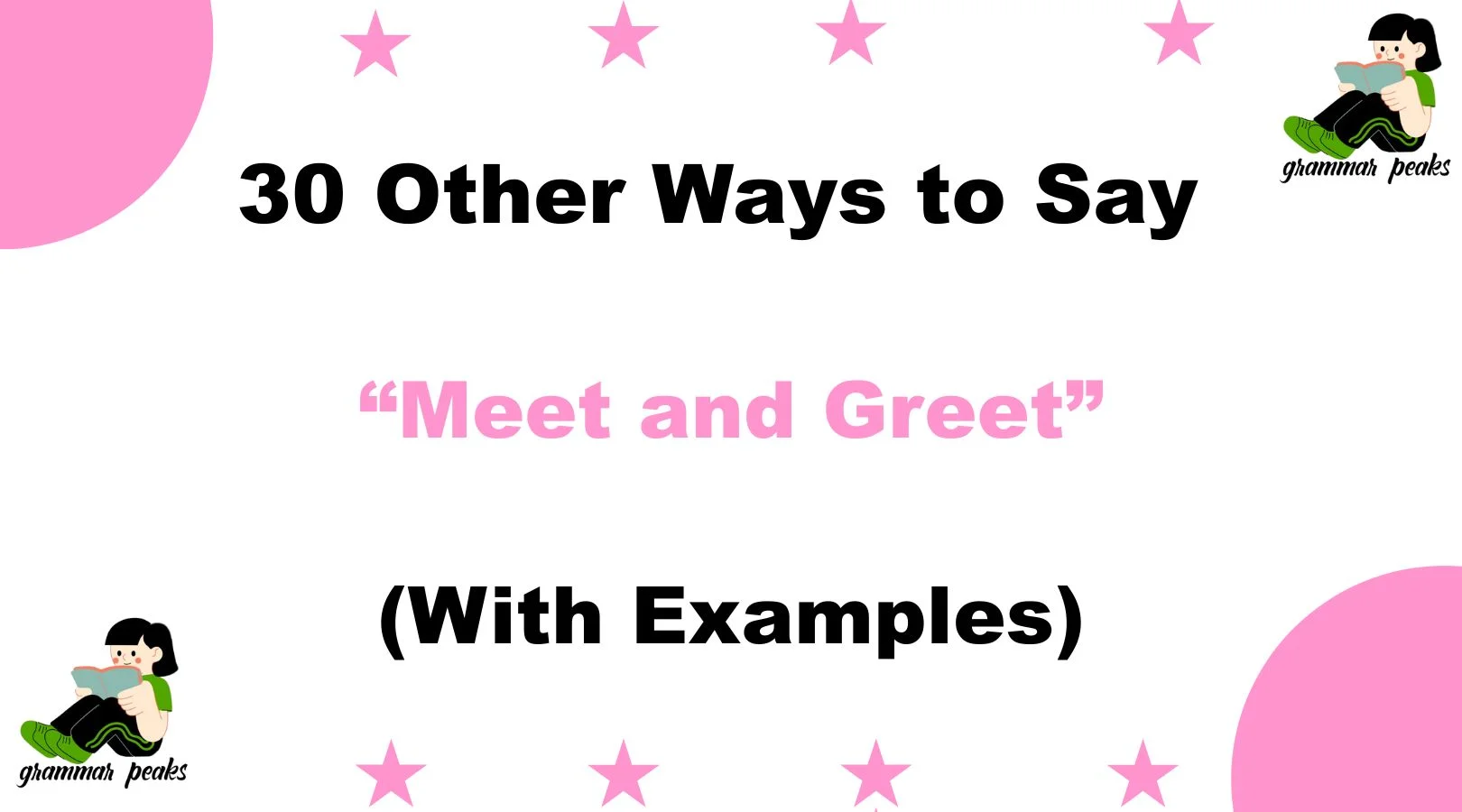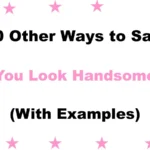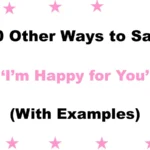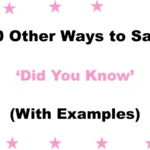Finding the right words to describe social gatherings like a meet and greet can make your message feel warmer and more meaningful. Whether you’re organising an event, inviting friends, or writing an announcement, the way you phrase it matters. Saying “meet and greet” can sometimes feel generic or overused, so having alternatives that add a personal touch or better fit your context can really elevate your communication.
In this article, we’ll explore 30 thoughtful alternatives to “meet and greet,” helping you express yourself with care and professionalism. Each option includes detailed explanations, example scenarios, and tips on the best and worst uses—ensuring you choose the perfect phrase for your occasion.
What Does “Meet and Greet” Mean?
“Meet and greet” refers to a social or professional gathering where people are introduced to one another, often for the first time. It’s typically an informal or semi-formal event designed to help individuals connect, build relationships, or become familiar with a group, setting, or team. These events can range from casual get-together and orientation sessions to more structured networking opportunities.
When to Use “Meet and Greet”
Use this phrase when you want to:
- Describe an event focused on introductions and casual conversations.
- Highlight the social and interactive nature of a gathering.
- Keep the tone friendly and approachable.
- Refer to a setting where participants may not know each other yet.
Avoid it when the event is highly formal, structured, or purpose-driven beyond initial introductions.
Is It Professional/Polite to Say “Meet and Greet”?
Yes, in many settings, especially in casual professional environments, “meet and greet” is both polite and appropriate. However, in very formal or traditional business settings, you might want to choose alternatives that sound more polished or specific to the occasion, like “networking session” or “introduction meeting.”
Pros and Cons of Using “Meet and Greet”
Pros:
- Easy to understand and widely recognized.
- Conveys a warm, casual atmosphere.
- Suitable for a variety of informal and semi-formal events.
Cons:
- Can sound generic or overused.
- May seem too informal for certain professional contexts.
- Lacks specificity for more structured or formal meetings.
Synonyms for “Meet and Greet”
- Introduction Session
- Welcome Reception
- Networking Event
- Social Mixer
- Orientation Meeting
- Icebreaker Gathering
- Meetup
- Reception
- Welcome Gathering
- Get-Together
- Meet and Chat
- Informal Meeting
- Kickoff Meeting
- Open House
- Team Introduction
- Social Reception
- Gathering
- Meet and Connect
- Welcome Party
- Community Meet
- Reception Hour
- Casual Meetup
- Welcome Session
- Mixer Event
- Friendly Introduction
- Networking Mixer
- Meet and Network
- Social Session
- Welcome Assembly
- Connection Event
1. Introduction Session
Definition: A planned meeting focused on formally introducing participants to one another.
Detailed Explanation: Typically used in professional or educational settings, an introduction session provides structured time for people to meet and learn basic information about each other.
Scenario Example: The orientation week began with an introduction session for all new students.
Best Use: Schools, companies, workshops.
Worst Use: Casual or informal social events.
Tone: Formal, organized, welcoming.
2. Welcome Reception
Definition: An event designed to warmly welcome guests or new members.
Detailed Explanation: Often includes light refreshments and an opportunity for guests to mingle in a relaxed setting.
Scenario Example: The university held a welcome reception for incoming international students.
Best Use: Formal or semi-formal gatherings, professional introductions.
Worst Use: Small, informal meetups.
Tone: Warm, inviting, professional.
3. Networking Event
Definition: A gathering aimed at building professional relationships.
Detailed Explanation: Focused on connecting people for future collaboration or business opportunities.
Scenario Example: The chamber of commerce hosted a networking event for local entrepreneurs.
Best Use: Professional settings, industry events.
Worst Use: Social or casual introductions with no business focus.
Tone: Professional, purposeful, engaging.
4. Social Mixer
Definition: An informal event encouraging socializing among attendees.
Detailed Explanation: Often used to describe casual gatherings where mingling is encouraged.
Scenario Example: The company’s annual social mixer was a chance for all departments to connect.
Best Use: Casual or semi-formal social settings.
Worst Use: Highly formal or structured meetings.
Tone: Relaxed, friendly, lively.
5. Orientation Meeting
Definition: A meeting to introduce newcomers to the policies, culture, or structure of a group or organization.
Detailed Explanation: More informative than a meet and greet, it often includes presentations and guidelines.
Scenario Example: New hires attended an orientation meeting on their first day.
Best Use: Workplaces, educational institutions.
Worst Use: Purely social events.
Tone: Formal, instructive, welcoming.
6. Icebreaker Gathering
Definition: An event designed to help participants break the ice and feel comfortable.
Detailed Explanation: Includes activities or games to encourage interaction.
Scenario Example: The retreat started with an icebreaker gathering to help everyone relax.
Best Use: Workshops, retreats, team-building events.
Worst Use: Formal meetings.
Tone: Fun, casual, engaging.
7. Meetup
Definition: An informal gathering of people with a common interest.
Detailed Explanation: Often organized by communities or hobby groups.
Scenario Example: The local book club’s monthly meetup was held at a cozy café.
Best Use: Interest-based or community groups.
Worst Use: Corporate or formal settings.
Tone: Casual, friendly, informal.
8. Reception
Definition: A formal event to welcome or honor guests.
Detailed Explanation: Usually involves refreshments and speeches.
Scenario Example: The ambassador hosted a reception for visiting dignitaries.
Best Use: Diplomatic, corporate, or formal social events.
Worst Use: Casual meetups.
Tone: Formal, respectful, elegant.
9. Welcome Gathering
Definition: An informal event welcoming new members.
Detailed Explanation: Focuses on social introductions in a relaxed environment.
Scenario Example: The community center held a welcome gathering for new residents.
Best Use: Community groups, clubs.
Worst Use: Highly formal or professional meetings.
Tone: Friendly, warm, informal.
10. Get-Together
Definition: A casual meeting of friends or acquaintances.
Detailed Explanation: Generally informal with no strict agenda.
Scenario Example: We had a weekend get-together at Sarah’s house.
Best Use: Personal, informal social events.
Worst Use: Professional or formal settings.
Tone: Casual, relaxed, intimate.
11. Meet and Chat
Definition: A casual phrase used to describe an informal moment of getting acquainted through conversation.
Detailed Explanation: Often used in relaxed, personal settings, this phrase emphasizes the talking aspect of the meeting.
Scenario Example: Parents were invited to meet and chat with the new teacher after school.
Best Use: School events, community spaces, informal introductions.
Worst Use: Formal or corporate environments.
Tone: Warm, relaxed, conversational.
12. Informal Meeting
Definition: A loosely structured gathering where the goal is to connect casually.
Detailed Explanation: Doesn’t follow a strict agenda and allows participants to interact freely.
Scenario Example: The team held an informal meeting to brainstorm and catch up.
Best Use: Startups, creative teams, small businesses.
Worst Use: Diplomatic or legal settings.
Tone: Flexible, friendly, open-ended.
13. Kickoff Meeting
Definition: A first meeting that marks the beginning of a project or relationship.
Detailed Explanation: Used professionally to align teams and initiate introductions.
Scenario Example: The marketing department hosted a kickoff meeting for the product launch.
Best Use: Workplace settings, group collaborations.
Worst Use: Purely social events or casual gatherings.
Tone: Energetic, purposeful, organized.
14. Open House
Definition: An event where guests are invited to explore and interact in an open setting.
Detailed Explanation: Often used in real estate, schools, or businesses to welcome visitors.
Scenario Example: The art studio hosted an open house to welcome new students and families.
Best Use: Community, educational, and creative environments.
Worst Use: Small, invite-only meetups.
Tone: Welcoming, informative, public-facing.
15. Team Introduction
Definition: A structured time for individuals in a team to meet and get to know one another.
Detailed Explanation: Helpful in professional onboarding or team-building sessions.
Scenario Example: On her first day, Jenna participated in a team introduction to meet everyone.
Best Use: Corporate teams, new hires, departments.
Worst Use: Public or open events with strangers.
Tone: Professional, clear, engaging.
16. Social Reception
Definition: A formal yet friendly event designed for networking or mingling.
Detailed Explanation: Usually includes refreshments and light social interaction in a formal venue.
Scenario Example: The alumni association held a social reception after the panel discussion.
Best Use: University events, formal community gatherings.
Worst Use: Spontaneous or private social occasions.
Tone: Elegant, structured, sociable.
17. Gathering
Definition: A general term for a group of people coming together.
Detailed Explanation: Flexible in meaning, it can be adapted to both casual and semi-formal settings.
Scenario Example: Our neighborhood hosts a monthly gathering at the park.
Best Use: Family, neighborhood, or community events.
Worst Use: Strictly professional or legal meetings.
Tone: Warm, inclusive, flexible.
18. Meet and Connect
Definition: An intentional meeting where building new relationships is the focus.
Detailed Explanation: Used often in networking, team-building, or collaborative environments.
Scenario Example: The startup hosted a meet and connect session for investors and founders.
Best Use: Networking, partnerships, mentorships.
Worst Use: Events with a rigid agenda.
Tone: Professional, engaging, purposeful.
19. Welcome Party
Definition: A festive celebration for someone new.
Detailed Explanation: Combines socializing with a sense of celebration, perfect for warm welcomes.
Scenario Example: The office threw a welcome party for the new interns.
Best Use: Celebratory occasions, new arrivals.
Worst Use: Formal or serious contexts.
Tone: Cheerful, inviting, fun.
20. Community Meet
Definition: A gathering that brings together members of a community.
Detailed Explanation: Encourages local connection and communication among people with shared interests.
Scenario Example: There’s a monthly community meet at the town hall.
Best Use: Local clubs, civic groups, public engagement.
Worst Use: Private or professional internal events.
Tone: Inclusive, collaborative, warm.
21. Reception Hour
Definition: A dedicated hour for casual interaction, usually before or after a formal event.
Detailed Explanation: Encourages informal chats, networking, or personal introductions.
Scenario Example: Join us for a reception hour before the keynote presentation.
Best Use: Conferences, weddings, ceremonies.
Worst Use: Events without time for socializing.
Tone: Refined, social, lighthearted.
22. Casual Meetup
Definition: An informal and easygoing get-together.
Detailed Explanation: Often spontaneous or lightly organized, focused on hanging out.
Scenario Example: We had a casual meetup after work to unwind.
Best Use: Friends, hobby groups, coworkers.
Worst Use: Formal introductions or official functions.
Tone: Laid-back, spontaneous, casual.
23. Welcome Session
Definition: A designated time to greet and introduce new individuals to a group.
Detailed Explanation: Often includes basic info, a friendly tone, and brief introductions.
Scenario Example: The first day began with a welcome session for all participants.
Best Use: Workshops, training, schools.
Worst Use: Celebratory or party-like events.
Tone: Polite, professional, friendly.
24. Mixer Event
Definition: An informal gathering for mingling and getting to know others.
Detailed Explanation: Commonly used in networking or social environments.
Scenario Example: The tech mixer event brought together developers from across the city.
Best Use: Industry, college, or creative networking.
Worst Use: Highly structured or rigid events.
Tone: Energetic, approachable, dynamic.
25. Friendly Introduction
Definition: A soft and personal way of initiating contact between people.
Detailed Explanation: Suggests a warm, non-intimidating atmosphere.
Scenario Example: We had a friendly introduction before the meeting started.
Best Use: Small team settings, personal networking.
Worst Use: Large-scale or impersonal events.
Tone: Gentle, personal, empathetic.
26. Networking Mixer
Definition: A cross between a mixer and a professional networking session.
Detailed Explanation: Perfect for fostering connections while keeping things relaxed.
Scenario Example: The networking mixer was filled with creatives from various backgrounds.
Best Use: Business, creative industries, job seekers.
Worst Use: Strictly personal gatherings.
Tone: Professional, social, upbeat.
27. Meet and Network
Definition: A phrase that emphasizes both introduction and relationship-building.
Detailed Explanation: Used in professional settings where collaboration is the goal.
Scenario Example: The program included a meet and network lunch break.
Best Use: Business, partnerships, community initiatives.
Worst Use: Purely casual or celebratory occasions.
Tone: Strategic, warm, purposeful.
28. Social Session
Definition: A gathering designed for easy going conversation and connection.
Detailed Explanation: Can be added to workshops or formal agendas to break the ice.
Scenario Example: After the training, we had a social session with snacks and coffee.
Best Use: Workshops, education, team-building.
Worst Use: Highly formal or solemn events.
Tone: Friendly, informal, laid-back.
29. Welcome Assembly
Definition: A formal meeting to greet and orient new members.
Detailed Explanation: Often includes speeches or presentations as part of a warm welcome.
Scenario Example: The school’s welcome assembly introduced the staff to new students.
Best Use: Schools, organizations, institutions.
Worst Use: Small or informal meetups.
Tone: Formal, informative, welcoming.
30. Connection Event
Definition: An event focused on building meaningful interpersonal or professional relationships.
Detailed Explanation: Highlights the intention of deeper engagement beyond quick intros.
Scenario Example: The nonprofit hosted a connection event for local leaders.
Best Use: Community, leadership, partnerships.
Worst Use: Superficial or rushed settings.
Tone: Purposeful, warm, community-focused.
Conclusion
Finding alternatives to “meet and greet” allows you to refine your tone, match your audience, and create a more intentional experience. Whether you’re planning a casual meetup, a professional networking mixer, or a community-building session, each alternative in this list offers a unique nuance.
By understanding their meanings, best uses, and tone, you can choose the phrase that best suits your moment—and connect with others in a way that’s authentic, meaningful, and respectful. Let your words help build the kind of welcoming space where people feel seen, heard, and included.
FAQs
1. Why should I use alternatives to “meet and greet”?
Using alternatives allows you to match your tone to the audience or event. Some phrases feel more professional, while others are friendlier or more relaxed. Choosing the right alternative can make your message feel more personal, thoughtful, and appropriate to the setting—whether it’s a networking session, casual meetup, or formal reception.
2. Are all these alternatives professional?
Not all, but many are. Terms like “networking event,” “kickoff meeting,” or “orientation session” are perfectly suited for professional environments. Others like “get-together” or “casual meetup” are better for informal, social, or community gatherings. The key is to choose based on the tone and purpose of your interaction.
3. Can I use these alternatives in emails or invitations?
Absolutely! These phrases can make your communication more engaging and intentional. For instance, instead of writing “You’re invited to a meet and greet,” you might say “Join us for a welcome reception” or “Let’s connect at our upcoming social mixer.” It gives the reader a clearer sense of the event’s tone.
4. Is “meet and greet” still okay to use?
Yes, it’s still perfectly fine—especially in casual, friendly, or entertainment settings. However, if you want to sound more polished, warm, or specific, using an alternative can be a refreshing change. It’s all about choosing what best suits the occasion and audience.
5. How can I choose the best phrase for my event?
Think about:
- Tone – Is it formal, semi-formal, or casual?
- Audience – Are you addressing professionals, students, friends, or the public?
- Purpose – Is the goal to connect socially, introduce team members, or network professionally?
Once you’ve defined these, choose a term that aligns with your goals. For example:
- Formal: Welcome Reception
- Professional: Networking Event
- Casual: Social Mixer or Get-Together
- Community-based: Community Meet or Open House

Mariah Cannon is a dedicated Senior Content Specialist at GrammarPeaks, known for her clear, engaging writing and deep knowledge of English grammar and usage. With a background in linguistics and years of experience in content development, Mariah crafts informative and accessible articles that empower readers to master the nuances of the English language. Her work reflects a commitment to clarity, education, and helping others express themselves with confidence.





